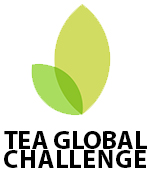COMPETITION RULES
1. Participants Experience and Collaboration
Participants of all experience levels are welcome to participate.
Participants are encouraged to form teams and collaborate with colleagues of various experience levels, expertise and sectors.
The proposed case studies will be scored according to participants background and experience, from beginner to intermediate and expert.
2. Problem Solving
Teams will solve the problem that was shared by the HESI TEA Committee, following the TEA framework.
The problem was designed to be solved in a conceptual way, but teams are welcome to use data if any are available.
Participants will refer to the material shared by the TEA Committee to learn about the TEA Framework and conceptual model.
An informational meeting will be held to clarify any potential questions from participants (Date TBD).
3. Submission
Teams will submit their proposals on the TEA Global Challenge Portal by the published deadline
5. Proposals will be reviewed by a sub-group of the TEA committee, comprising of members of the public and private sectors.
5. Judging Criteria and Finalists Selection
Finalists will be selected based on: 1) Scientific validity of the proposed approach, 2) Demonstrated application of the precepts of the TEA framework, 3) Innovative integration of existing non-animal methods
The teams’ background and level of experience with safety assessment of agrochemicals will be factored into the selection.
In case of a tie, the Committee may add participants to provide a 10 min presentation of their case study to determine the finalists.
6. Presentation at the HESI TEA Symposium
Each finalist team will select one representative, who will be invited to participate in the HESI TEA Symposium in Washington, DC (Date TBD) free of charge
Team representatives will present their case study to Symposium attendees
Symposium participants will select the overall winning proposal.
IMPORTANT DATES
Key deadlines for the Challenge are the following:
